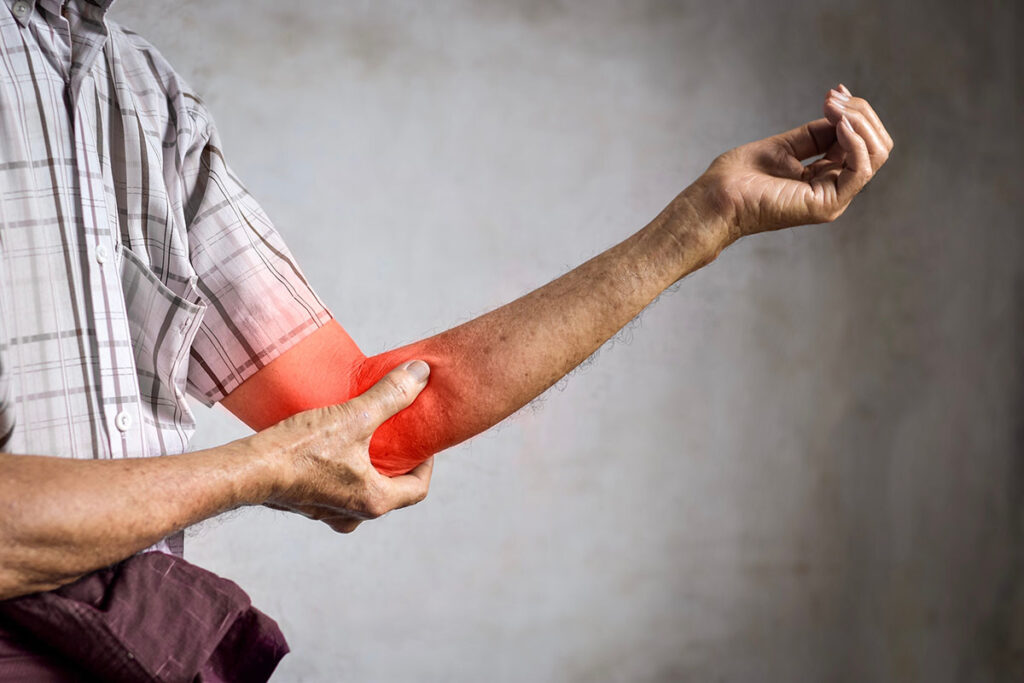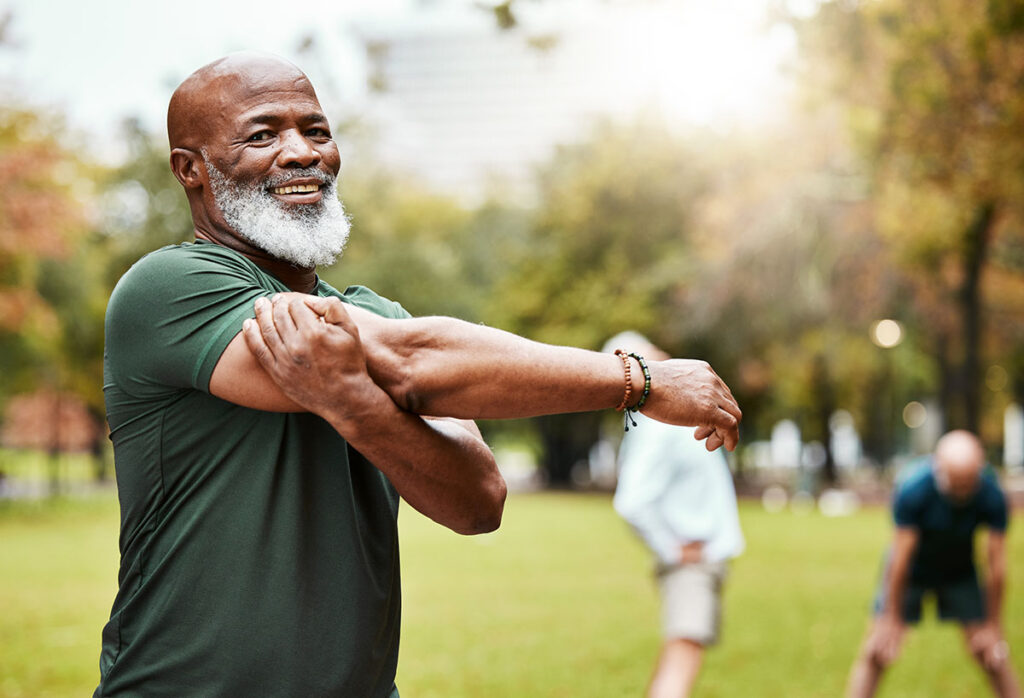

Physicians
Search

GENERAL INFORMATION
Similar to tennis elbow, golfer’s elbow is a type of elbow tendinosis that can be frustratingly painful. It is not limited to golfers and is characterized by pain from the elbow to the wrist on the inside of the elbow. Fortunately, most of the time it will heal on its own but if it remains recalcitrant, it can be successfully treated.
The medical name for the golfer’s elbow is medial epicondylitis, a form of tendinosis resulting in pain and inflammation in the tendons that connect the elbow to the forearm. The pain usually stems from the bony bump inside the elbow and can radiate into the forearm. Diagnosing a golfer’s elbow requires a physical exam that is relatively straightforward:
The chief symptom of golfer’s elbow is pain, which can happen suddenly or over time, but you may also experience:
Golfer’s elbow is an overuse injury, specifically overusing the muscles in the forearm, which allows for gripping, rotating the arm, and flexing the wrist. Repetitive flexing, gripping, or swinging pulls or creates tiny tears in the tendons, which create the injury. This does not only occur in golfers. Any wrist, hand, or forearm motions that are done repetitively can cause it, such as:
Most of the time, golfer’s elbow will resolve itself without any medical treatments, but adequately managing the injury can help speed the healing:

Golfer’s elbow is an overuse or repetitive injury, and the key to preventing it is to avoid overuse of the elbow. If you feel any pain in the elbow during an activity, stop before it worsens. Other preventative methods include:
At Proliance Puget Sound Orthopaedics, we provide best-in-class orthopedic care to our community with compassion, caring, and dedicated expertise for golfer’s elbow. If you’re suffering from any of the symptoms listed or need treatment, we encourage you to call (253) 830 – 5200 or request an appointment online to see one of our physicians.